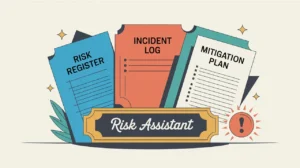What Does the Evaluation Assistant Role Involve?
An evaluation assistant is responsible for supporting the design, implementation, and management of monitoring and evaluation (M&E) activities within an organization. This includes collecting and organizing data, supporting the administration of surveys and feedback tools, maintaining databases, assisting in the preparation of reports, and coordinating with program teams to ensure that evaluation activities run smoothly. The role typically sits within the monitoring, evaluation, and learning (MEL) or research and insights function and provides essential support to evaluation specialists, officers, and managers. In both nonprofits and social enterprises, evaluation assistants play a key role in ensuring that data and evidence are collected and managed systematically to inform decision making and demonstrate impact.
At What Level does this Role Operate?
Entry Level: This role typically reports to an evaluation officer, evaluation manager, or MEL lead. It focuses on executing routine data collection, management, and reporting tasks rather than designing evaluation frameworks or strategies.
Relative Employability: Evaluation assistant roles are in steady demand, particularly among organizations that prioritize evidence-based decision making and impact measurement. Nonprofits, social enterprises, and development organizations frequently hire for these positions as part of their MEL infrastructure.
Relative Pay Scale: Within nonprofits and social enterprises, evaluation assistant roles sit in the entry-level pay bands, reflecting their focus on operational support within broader MEL systems.
What are the Key Responsibilities and Activities?
- Collect, clean, and organize monitoring and evaluation data from program teams and field activities
- Support the administration of surveys, feedback mechanisms, and other data collection tools
- Maintain databases and ensure that data are stored accurately and securely
- Assist in the preparation of evaluation reports, presentations, and dashboards
- Coordinate with program staff to ensure timely and accurate data submissions
- Perform basic data analysis to support the preparation of findings and summaries
- Help document methodologies, processes, and lessons learned from evaluation activities
- Support quality assurance processes for data collection and reporting
- Contribute to logistical and administrative tasks related to evaluation activities
What Core Competencies and Qualifications are Needed?
Required Qualifications and Experience
The following reflect common qualifications and experience expected for this role, while recognizing that pathways may vary by context, organization, and region.
- Relevant academic background in social sciences, public policy, statistics, economics, development studies, or a related field, or equivalent professional experience
- Experience with data collection and entry, whether through internships, coursework, or work experience
- Familiarity with basic data analysis tools and methods
- Strong organizational skills and attention to detail
- Proficiency with spreadsheet software and database systems
Key Competencies
- Data collection and entry accuracy
- Database management and documentation
- Survey administration and coordination
- Basic data analysis and reporting support
- Cross-team coordination with program and MEL staff
- Organizational and quality assurance skills
How are AI and Automation Shaping this Role?
An AI-native evaluation assistant will look to AI and automation to improve the speed, accuracy, and reliability of data collection and analysis. They can use AI tools to assist in cleaning and organizing data, detecting anomalies, and generating initial summaries or visualizations. Automation can streamline survey distribution, data imports, reporting schedules, and quality checks, enabling assistants to focus on higher-value tasks like data interpretation support and coordination. By using AI effectively, evaluation assistants can enhance the overall quality and efficiency of MEL systems.
What Career Pathways and Transferable Skills are Associated with this Role?
Evaluation assistant roles can lead to positions such as evaluation officer, MEL associate, data analyst, or research assistant. The skills developed in data collection, database management, and basic analysis are highly transferable across nonprofits, social enterprises, research institutions, and government agencies. This role provides a strong foundation for advancing into analytical, research, or MEL leadership positions that shape evidence and impact strategies.







